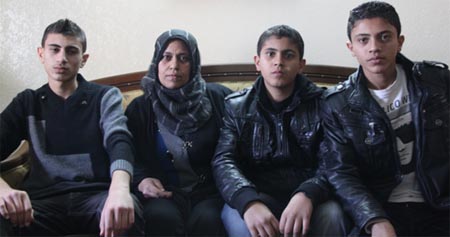Tag: Tal el-Hawa
-
Remembering Mamoun, killed by an Israeli missile as he played football
By Rami Almeghari 22 June 2012 | The Electronic Intifada, Gaza City “I can never forget his image with blood all over his little body and both his legs badly injured,” Umm Mamoun Hassouna told The Electronic Intifada as she sat at a relative’s house in Gaza City. “I am a preacher [for women] at…
-
15 January 2009: The al-Nadeem family
15 January 2012 | Palestinian Centre for Human Rights “Naser used to help the children with their school work, especially English and mathematics. Now that is my duty. Nothing can compensate me for the loss of my husband. He was always very tender, understanding and calm.” On 15 January 2009, shortly after 7:00, the Israeli…
-
Israel bombs University Teachers Association in Gaza – Boycott Now!
Palestinian Campaign for the Cultural & Academic Boycott of Israel (PACBI) January 18, 2009 Occupied Palestine – PACBI learned today from its Steering Committee member, Dr. Haidar Eid, that the headquarters of the University Teachers Association-Palestine, in Gaza, was bombed by the Israeli occupation forces during their indiscriminate, willful destruction campaign in the Tal el-Hawa…

